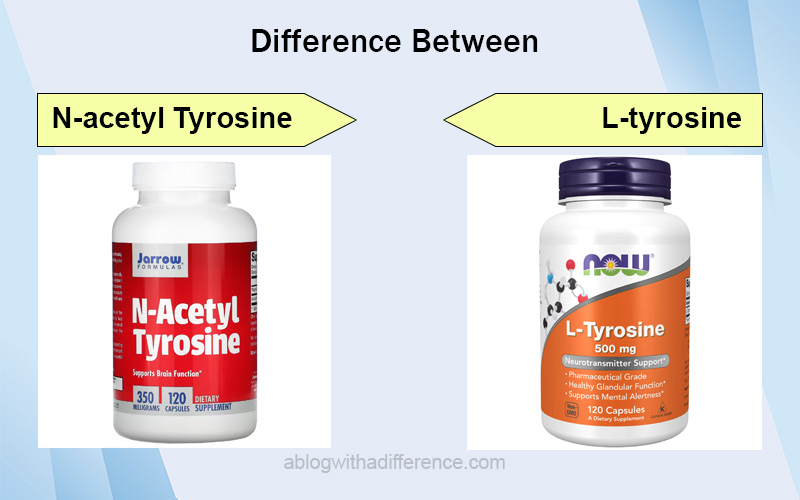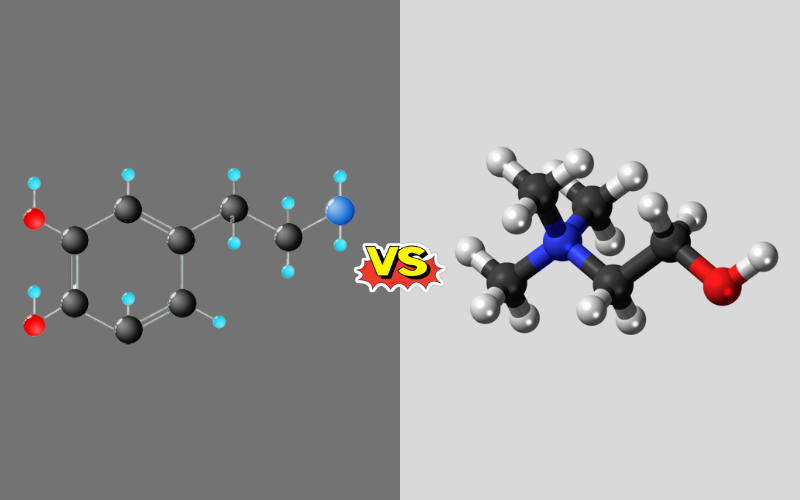Difference Between N-acetyl Tyrosine and L-tyrosine
Brief overview of N-Acetyl Tyrosine and L-Tyrosine
N-acetyl Tyrosine and L-tyrosine both play vital roles in biochemical pathways and functional roles; they share many similarities; however, their bioavailability differs drastically between each other due to the addition of an acetyl group in N-acetyl Tyrosine which increases absorption, bioavailability and blood-brain barrier crossing capabilities allowing it to help support cognitive performance as well as mood enhancement.
what is N-acetyl Tyrosine?
N-acetyl Tyrosine (N-Acetyl-L-tyrosine), also referred to as N-Acetyl-L-tyrosine is an altered version of L-tyrosine that increases Bioavailability and absorption into the body by adding an acetyl group (-COCH3) onto its amino group (-NH2). This modification enhances Bioavailability.

N-acetyl Tyrosine plays an essential role in numerous physiological processes and serves as a precursor for Neurotransmitter syntheses such as dopamine Epinephrine and Norepinephrine which all play vital roles in mood regulation, cognitive performance, stress response management, as well as overall brain health.
N-acetyl Tyrosine’s addition of an acetyl group may have several detrimental side effects. Most significantly its increased lipophilicity means greater affinity towards fat-soluble substances – this allows N-acetyl Tyrosine to more readily cross the blood-brain barrier compared with L-tyrosine, leading to greater availability of the amino acid within brain tissue.
As a nutritional supplement, N-acetyl Tyrosine can be an invaluable aid to cognitive functioning, improved mental performance, mood enhancement and combatting stress and fatigue. Researchers believe its acetylation increases stability and efficacy as an aid.
N-acetyl Tyrosine can bring many advantages, yet individual reactions may vary widely depending on who takes it and their circumstances. Therefore, before adding N-acetyl Tyrosine supplements into your daily regimen it is wise to consult a healthcare practitioner so they can advise you of an ideal dose to meet both your personal requirements and health conditions.
what is L-tyrosine?
L-tyrosine is an amino acid produced naturally within the body as well as obtained through food sources, making it one of many non-essential amino acids whose body can produce when needed by Synthesizing other amino acids to Synthesize L-tyrosine directly from other amino acids.
L-tyrosine plays an essential part in multiple physiological processes. As its precursor for producing essential neurotransmitters such as dopamine, norepinephrine, and epinephrine which play key roles in mood, stress response, cognitive performance and overall brain health regulation.
L-tyrosine plays an essential part in neurotransmitter production; but its production also forms the building blocks for other important biomolecules within our bodies, like melanin pigment which accounts for hair skin and eye color differences.

L-tyrosine can be obtained through diet alone; for instance from meat, dairy products, fish eggs nuts and legumes are excellent sources. But sometimes diet alone may not meet our bodies’ demands in times of increased stress or certain medical conditions – in such instances supplemental L-tyrosine supplements could provide extra support.
Supplementation with L-tyrosine can help enhance cognitive function, boost mood, manage stress more efficiently, increase energy levels and overall well-being. Effects may differ according to individuals; therefore it is advisable to speak to a healthcare provider prior to beginning any new supplement regimen so as to determine an ideal dose and suitability for yourself and any associated medical conditions.
Difference Between N-acetyl Tyrosine and L-tyrosine
1. Chemical Structure:
N-acetyl Tyrosine: N-acetyl Tyrosine is an esterified form of L-tyrosine with an additional carbonyl group attached directly to its amino group (-NH2).
L-Tyrosine: L-tyrosine is the unmodified version of tyrosine, consisting of an unsubstituted benzene ring with two functional groups attached: one is an hydroxyl group (-OH), an amino group (NH2) and a carboxyl group (COOH).
2. Bioavailability and Absorption:
N-acetyl Tyrosine: N-acetyl Tyrosine’s acetyl group increases lipophilicity, potentially improving solubility in fats while making it more suitable for crossing blood-brain barriers more readily and increasing absorption and bioavailability compared to L-tyrosine. This modification could enhance its bioavailability compared to its L counterpart.
L-tyrosine: Although generally well absorbed, L-tyrosine may have lower bioavailability compared to N-acetyl Tyrosine.
3. Applications and Effects:
N-acetyl Tyrosine: N-acetyl Tyrosine has become popular as a nutritional supplement to support cognitive function, enhance mood, reduce stress response and promote mental performance. Acetylation increases its stability and efficacy as an aid.
L-Tyrosine: L-tyrosine can also be consumed as a nutritional supplement to support brain health, mood regulation, stress reduction and energy production. It serves as an ingredient required to create neurotransmitters such as dopamine and norepinephrine for these functions, providing further health benefits from taking this dietary supplement.
4. Dosage and Forms:
N-acetyl Tyrosine: N-acetyl Tyrosine comes in various forms such as capsules, tablets and powder. Individual needs and specific products will determine your dosage requirements.
L-tyrosine: Available in capsule, tablet and powder forms for various uses and formulations; dosage recommendations vary accordingly; individual responses and suitability considerations must also be considered when taking L-tyrosine products.
Similarities Between N-acetyl Tyrosine and L-tyrosine
- The two share similar chemical properties since N-acetyl Tyrosine is a derivative of the L-tyrosine.
- Both are essential for the generation of nootropic effects.
- Additionally, they can be effective in a supplement for treating stress and similar conditions.
Conclusions
N-acetyl Tyrosine is a variant of L-tyrosine, whereas L-tyrosine is the most popular isomer for amino acid tyrosine. The main difference between L-tyrosine and N-acetyltyrosine is the fact that N-acetyl Tyrosine has higher absorption, and more powerful nootropic properties than L-tyrosine.


